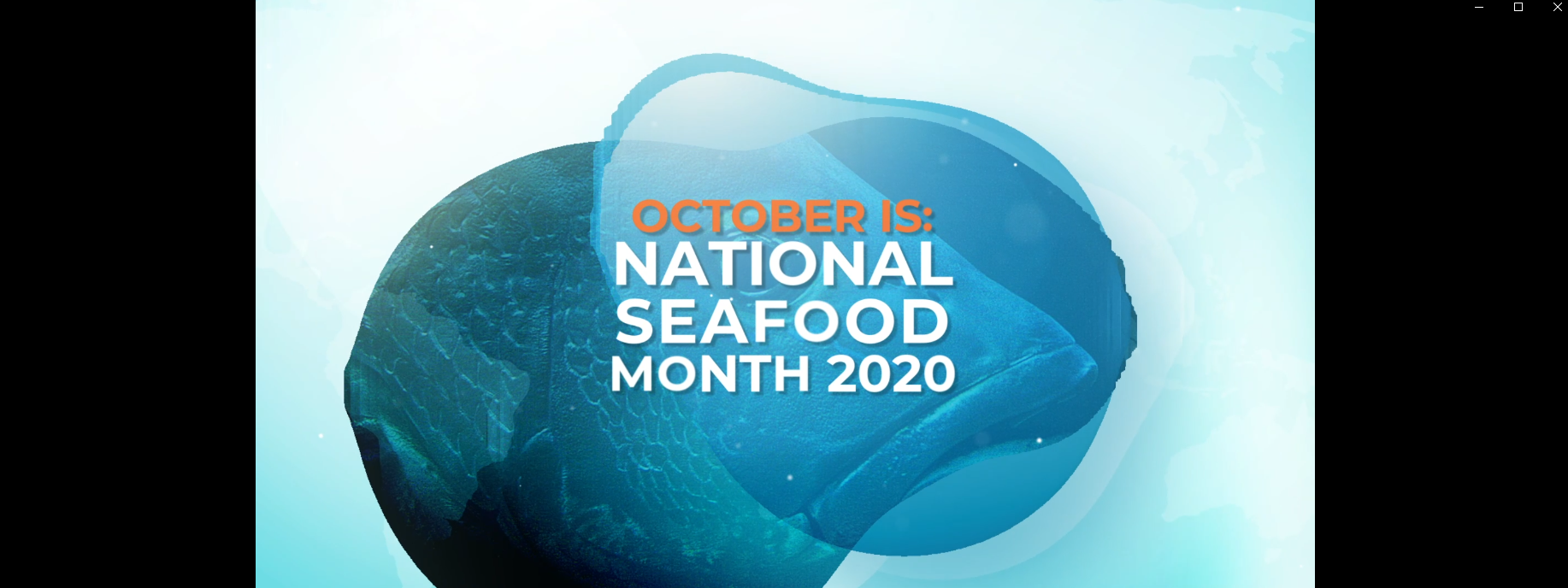
Loading
EP 510 | AIRED 10/19/2020
STATE OF THE PACIFIC SALMON - DFO, Listen to the Testimony
October 19th, 2020 --- This week we are showcasing some of the testimony given during The House of Commons Standing Committee on Fisheries and Oceans STATE OF THE PACIFIC SALMON sessions as Pacific Salmon in B.C. are experiencing some of the lowest runs in Canadian history.
"DFO is culturally and structurally broken." - Jesse Zeman
"Current monitoring of stocks consists of counting the fish in some streams and charting the decline. This is a great model to manage to extinction." - Dustin Snyder
"For some reason, the Canadian government is ignoring critical warnings that salmon farms are harming wild salmon runs." - Alexandra Morton
"I am extremely angry about this situation. It is a management tragedy. The definition of a tragedy is when you learn too late that you should have done things differently." - Dan Edwards
We created this piece for sharing - in hopes that it would cross the desk of Canada's Minister of Fisheries, Bernadette Jordan and even the desk of current Canadian Prime Minister, Justin Trudeau - as from what can be heard in the testimony - the industry is in big trouble.
[Dan Edwards - Fisher, West Coast Aquatic]
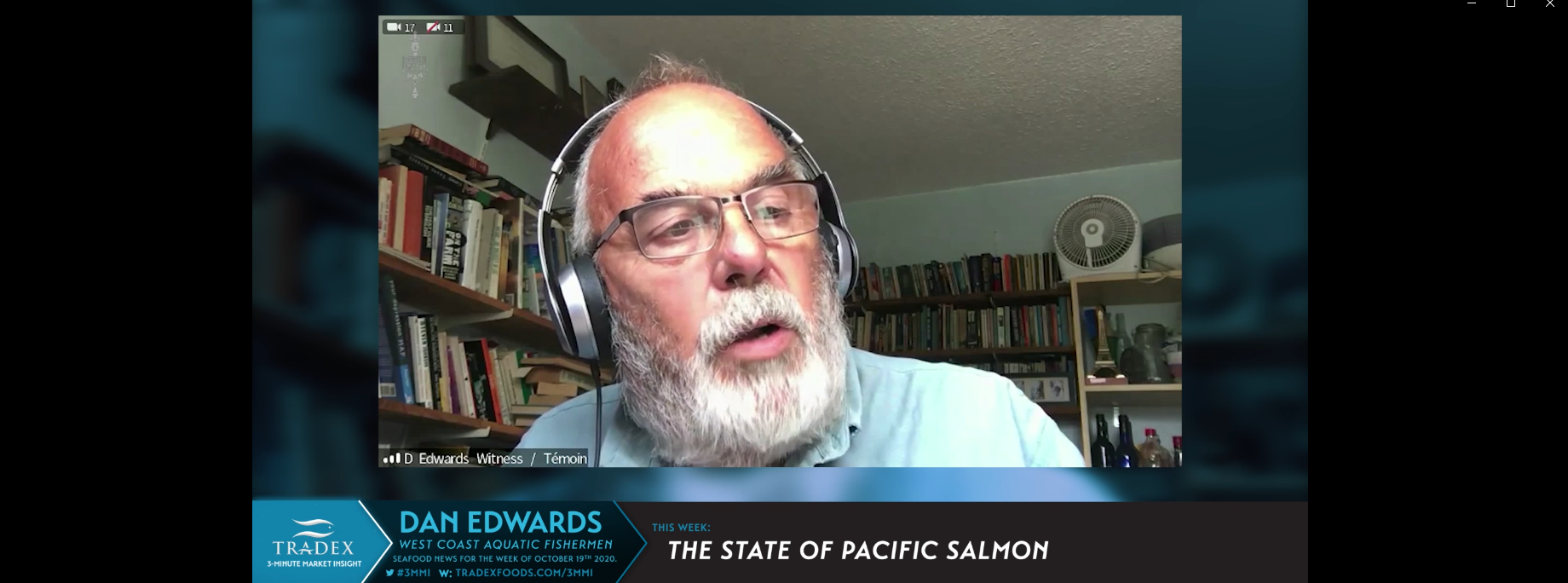
"I spent 40 years trolling for salmon in B.C. out of this community. I spent 15 years as the chair of a salmon enhancement society. I am the executive director of the Area A Crab Association, the largest crab fishery in B.C. I also own a groundfish longline vessel in partnership with my son and continue to be an active fisherman.
As I work on my boat in Ucluelet harbour, first nations and non-first nations fishermen are being set up to fight each other right on the docks in our community over the remaining access to ocean chinook and coho, while the federal government gives the lion's share of the resource to the commercial/ recreational fishery with absolutely no transfer mechanism to deal with the disenfranchisement.
My longline vessel is tied up this summer after fishing for years for 15% of the landed value of the fish I caught, because of the unregulated market created by ITQ management regimes, of which much is now owned and controlled offshore. I can no longer afford to untie the vessel to go fishing.
I am extremely angry about this situation. It is a management tragedy. The definition of a tragedy is when you learn too late that you should have done things differently.
I did not want to participate in this call when I first got the invitation. I asked Kathy Scarfo to do it. I am too angry and frustrated to speak anymore about a situation that, for 30 years, has been ignored by Pacific region. My head is bloody from beating against that unaccountable, terrible bureaucracy. I am reminded of something that a DFO enforcement person told me when I was occupying a DFO office in Tofino in 1996. He said he woke up every morning ashamed that he worked for this organization."
[Kathy Scarfo - President, West Coast Trollers Association]
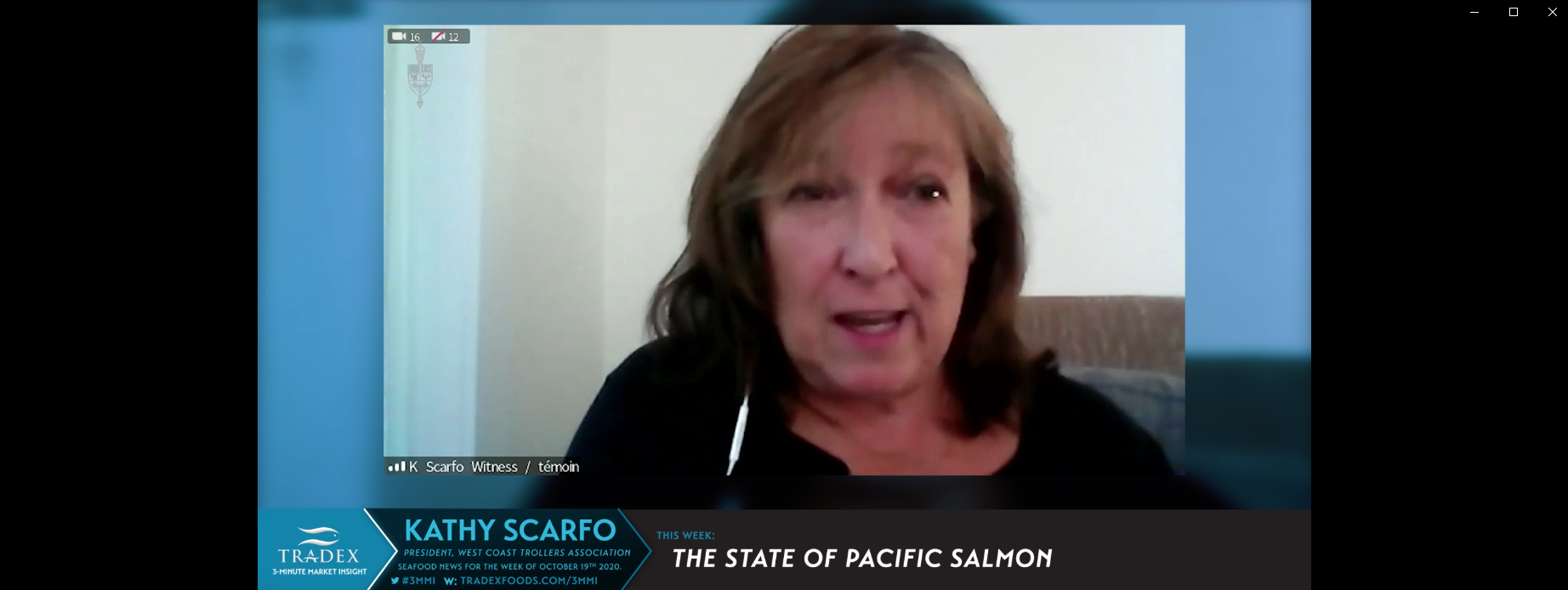
"Hi. I get six minutes to wrap up 30 years' worth of fisheries management, fisheries marketing, buying. I am president of the area G trollers, which are not trawlers. They're the guys who run the single lines through the water, with hooks on them, in different places.
The fleet that I manage, which I have been proud to be a member and president of for 22 years, is a salmon fishery, predominantly chinook, coho and sockeye.
I think it's important to recognize that when we talk about the Department of Fisheries and Oceans, it is the Department of Fisheries, not just fish. Right now it feels like it's the department of forgone opportunities in fisheries. We have economic opportunities that are being forgone because the department is not managing fisheries as their primary mandate; it is more about juggling who gets to fish. We often hear the statement that there are too many boats catching too few fish.
No doubt about it, we have massive conservation problems. We have climate change, habitat inland that's not being addressed and not being invested in, and salmon enhancement programs that have been gutted. We know all of those things. On top of that, there are still existing opportunities that would enable us to maintain a somewhat viable fishery; but the juggling of who gets access to those fish, and the fact that decisions are not being based on what is absolutely critical in fisheries management—first and foremost, science and biology—is a major issue. Basically it is the department of forgone opportunities, and I can speak directly to that.
If we are looking at solutions to moving forward, the first thing to do is to recognize that the situation in British Columbia is a disaster, and we need that disaster relief. We need somebody to call it for what it is, and it is a disaster: 90% of the fleet is not going to survive; they're being forced into bankruptcy. I think, in this situation, we need that disaster relief and recognition because then we can start to address the real problem.
The other thing we need to recognize is that salmon are not caught on the east coast. This is a four-year cycle. This is something that can be rebuilt and can have a future. What we need, rather than lip service from the ministry and the department, is an actual sense of leadership and governance that is...to manage fisheries, and to try to do their best.
The department is in a conflict of interest. They are managing buybacks at the same time as managing opportunities, which means, basically, that you bankrupt a fleet and then offer them the lowest amount of money they're willing to take because they're forced into bankruptcy."
[Brad Mirau - President & CEO, Aero Trading Co. Ltd.]
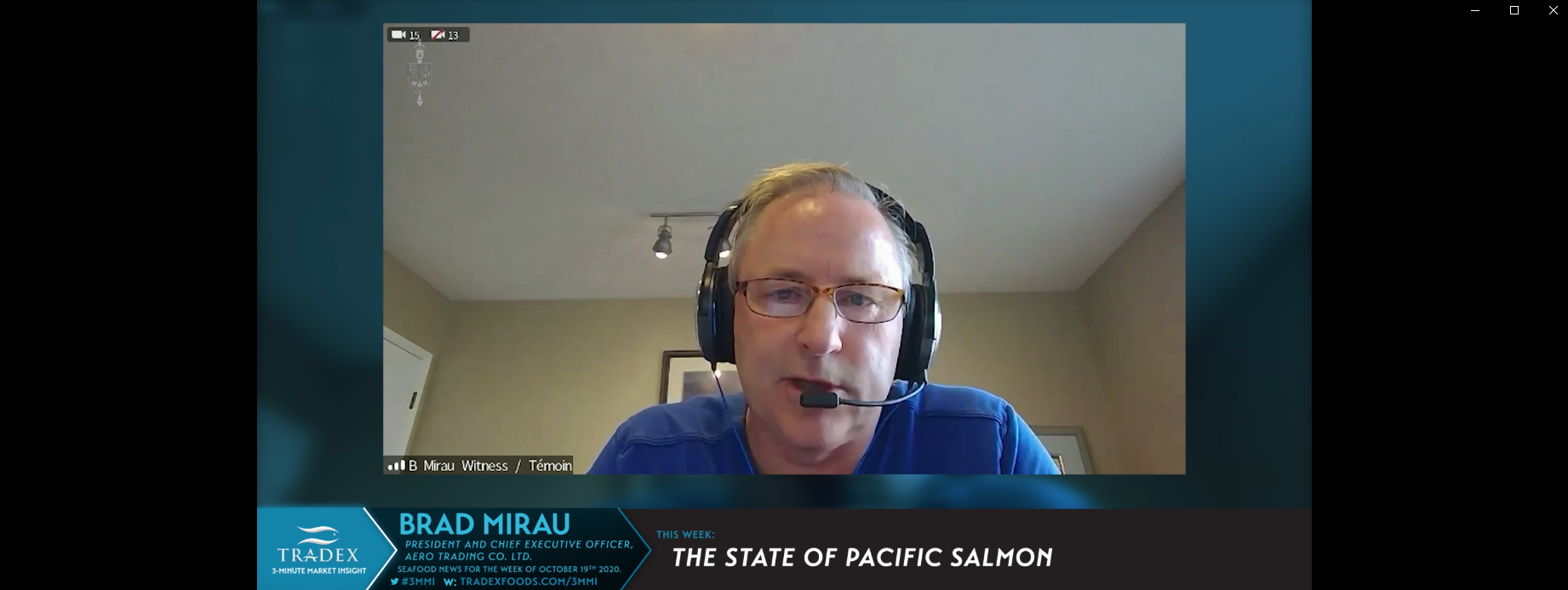
"My name is Brad Mirau, and I am the president and CEO of Aero Trading, a diversified seafood company operating in B.C.
As a processor, we exist as our fishermen do by having reliable access to a healthy and sustainable resource. We live or die by this simple access.
Issues such as climate, ocean nutrients, habitat, fish farms, weak stock management, predators, past overfishing and perhaps even under-fishing are just a few of the challenges the industry faces now.
Throughout this long period of decline of salmon and access in B.C., I have made so many trips to southeast Alaska to visit friends who operate plants there. There were so many similarities to our operations and catches and, in fact, we do share many common stocks of fish since we are so close geographically. Fast-forward to today, and the similarities are mostly gone.
Thirty years ago we thought we could rival Alaska in salmon production, but today we're just a shadow of what we once were. The question is, why? Why have we ended up here now in B.C., faced with declining salmon runs and reduced access, while Alaska continues to experience billions of dollars in economic prosperity from its fisheries and, more importantly, its fish stocks appear more healthy and sustainable than ours? I can't say that I know the answer, but could it be that they spend more on stock assessment and science, have a more transparent management regime, have no salmon farms and have higher harvest rates on salmon runs? These are just a few points we must consider when trying to formulate a plan for our future.
I don't wish to beat up only on DFO. In fairness to them, they have a lot on their plate. A lot of their employees work very hard, but over the years they've taken on too many responsibilities that are political in nature, and they do have a conflict of interest. The fishing fleet feels this."
[Dustin Snyder - Director, Stock Rebuilding Programs, Spruce City Wildlife Association]
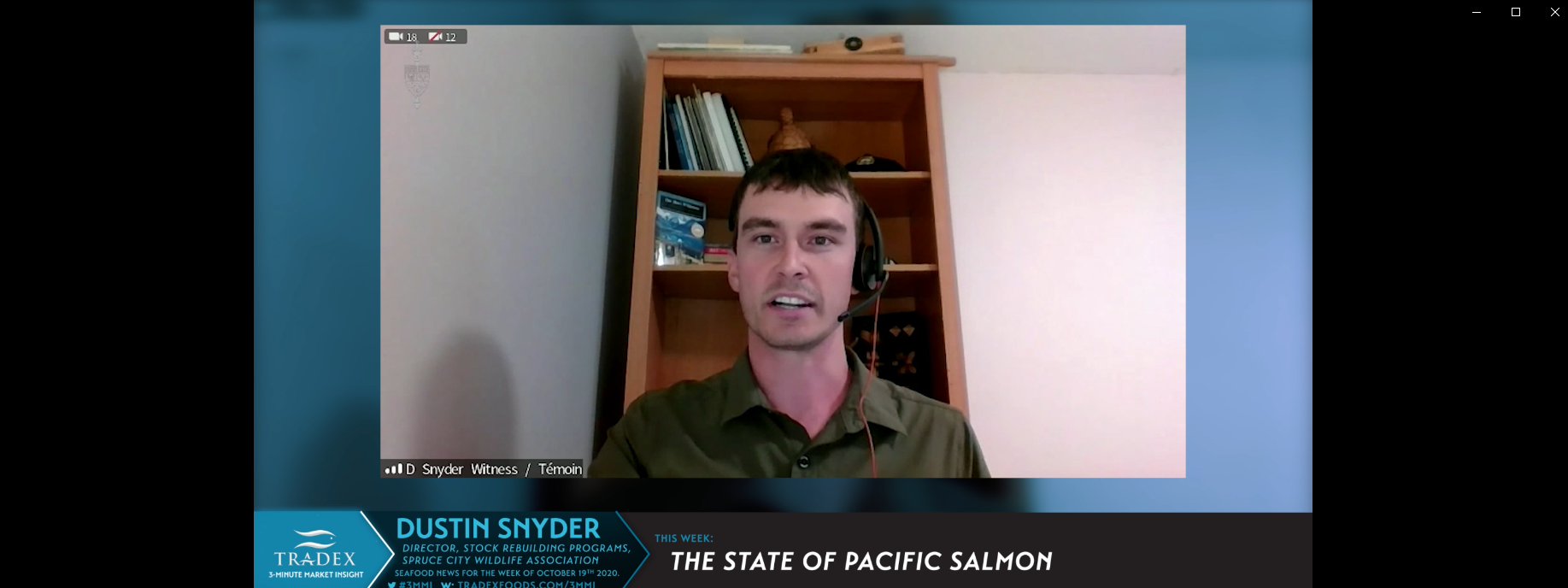
"Today I will be speaking about the state of salmon in B.C. using my experience with the upper and middle Fraser spring and summer chinook.
I'd like to touch on what is referred to as the “three Hs”: harvest, habitat and hatcheries.
While we know that harvest has been reduced in an effort to help these stocks, many reports state that these endangered and threatened stocks in the upper Fraser show a trend that would continue to decline even in the absence of harvest. Coded wire tag data here is 20-plus years old and is known to be incomplete and not meet the requirements of an indicator stock, yet is still currently used to make decisions. Genetic information on the upper Fraser is also lacking and needs to be refreshed. Lastly on this point, upper Fraser residents have not seen an opportunity to take part in fisheries for well over a decade. Our local first nations folks see little to no harvest many years. Despite that, there is recreational harvest in the marine environment, and first nations harvest taking place on the lower Fraser on these very stocks.
Habitat is a tricky one. While the province runs the land base, the feds manage the fish. Habitat will need collaboration. In the upper Fraser, there are many areas where little to no habitat work is needed. However, these areas are vulnerable to riparian degradation. After an area's timber is harvested, or a forest fire goes through, there is no provincial strategy to grow a healthy, resilient forest that could not only provide a strong economic future but help us meet these conservation targets as well. This conversation needs to happen with everybody at the table. Even agriculture can have a large impact on the health of riparian areas.
Lastly, on hatcheries, the kinds needed for stock rebuilding are not your run of the mill, “pump out a ton of fish” hatcheries. I'm talking about conservation hatcheries that are using strategic enhancement models, including releases at multiple life stages. A knee-jerk reaction to pump out as many fish as possible, like the proposed and cancelled Willow River facility, is no longer the answer. Building a massive hatchery in the upper Fraser is no longer going to make financial or practical sense. Stocks are so low that I believe we would need multiple small facilities. With DFO investment and advice, community and first nations partners would be able to move the facilities forward and leverage additional funding to increase these programs.
Current monitoring of stocks consists of counting the fish in some streams and charting the decline. This is a great model to manage to extinction."
[Fin Donnelly - Chair of the Board, Rivershed Society of British Columbia]
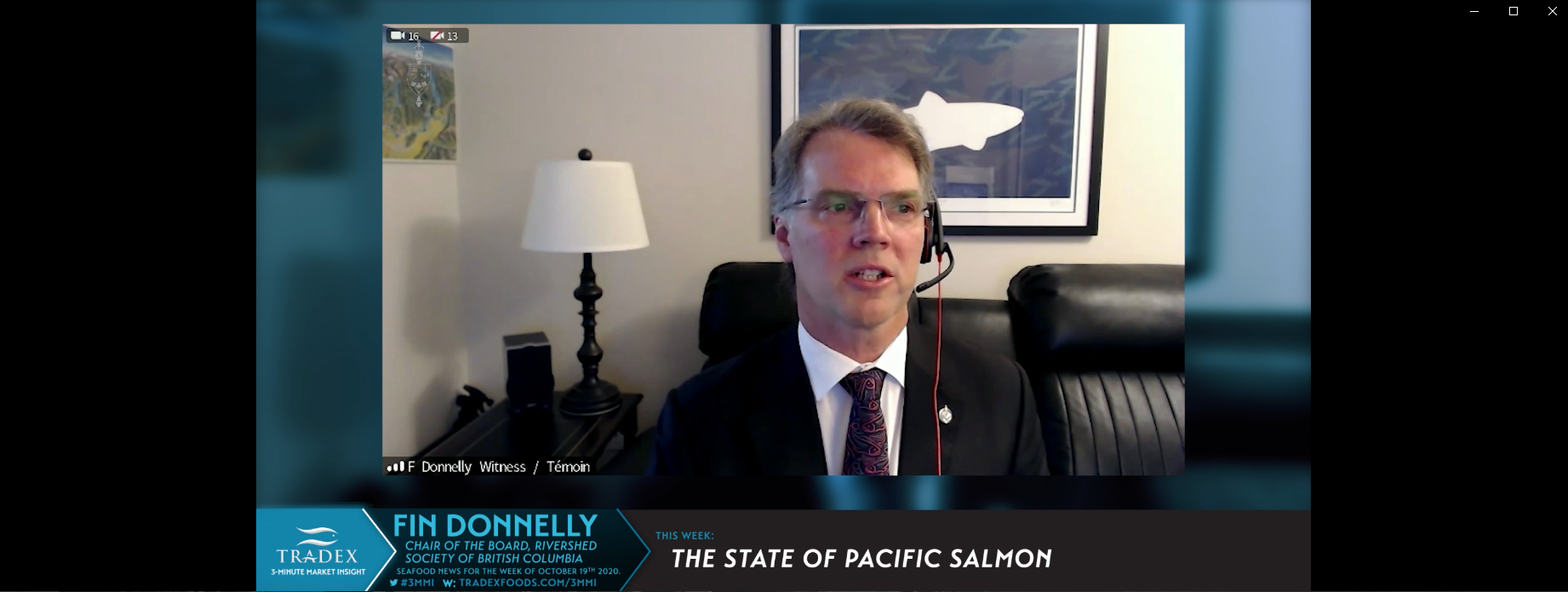
"We can't have healthy salmon and salmon runs if we don't have healthy watersheds. Currently the Fraser is threatened by cumulative impacts: a changing climate; over-consumption of resources; habitat destruction from urban development and resource extraction; loss of biodiversity; excess pollution; lack of regulation, monitoring and enforcement; reduced funding for watershed CPR; and impacts from open-net salmon farms.
Lack of government action on watershed CPR has left Fraser River salmon on life-support.
It's clear that past federal governments have failed wild Pacific salmon.
Some witnesses have asserted the department is broken. While I won't weigh in on that, I will say the department is a reflection of political will and leadership. Members of this committee are well aware of the problems facing west coast wild salmon, and I bet you could all agree on most of the needed solutions.
Members, you have heard enough testimony from witnesses to clearly recommend the action government needs to take to address the problems facing west coast wild salmon. Witnesses have pointed out the political arm of the government needs to give the bureaucratic arm a fighting chance with bold leadership, resources and support.
One witness clearly stated the government needs to take action, and he clearly identified a known framework, as you've just heard, for harvest, habitat and hatcheries.
First, we should support science-based conservation-oriented harvest levels.
Second, we should make a bold investment in habitat restoration and protection.
Third, we should address issues associated with industrial hatcheries and open-net salmon farms."
[Dan Edwards - Fisher, West Coast Aquatic] (Watch Part)
"My advice—which I am sure has never been listened to before, but I'm going to say it again—would be to dismantle the entire organization and start again with proper government and real consultation, not the sham that is presently being used by this government department."
[Kathy Scarfo - President, West Coast Trollers Association] (Watch Part)
"We need a department that is based on principles, some of which need to be fair and equitable, and on a transfer mechanism that is actually being used, because otherwise we are pitting user groups against each other to basically fight over the crumbs of what is left for opportunities."
[Brad Mirau - President & CEO, Aero Trading Co. Ltd.] (Watch Part)
"Our industry, sadly, may have to acknowledge that, in the short term, we simply may have too many salmon vessels chasing diminished stocks or diminished access. The necessary time required to rebuild may simply be too long for fishermen to hang on. In this case, the federal government should offer a fair price to fishermen to retire their salmon licence. However, do not make them bid against one another to see who is the most desperate. Allow them to retire with some dignity. These are the government's own words. I'd also like to see control in the populations of predators, such as seals and sea lions. I realize this is a controversial subject, but I have seen reports that they consume more seafood than the entire commercial sector combined. I'd like to see more salmon enhancement programs like Alaska has."
[Alexandra Morton - Independent Biologist, MLA Candidate North Island Green Party] (Watch Part)
"You should create a Pacific region director of wild salmon. We need somebody at a senior management level in DFO whose whole life is focusing on restoring wild salmon, and this must be done in partnership with first nations."
[Jason Hwang - Vice-President, Pacific Salmon Foundation] (Watch Part)
"Significant new investment is required into the three “H” levers—harvest, hatcheries and habitat. New dollars need to go into DFO as well as to collaborators and partners. The management system needs to be revitalized. Consideration should be given to an independent oversight body to complement the work that DFO and other regulatory agencies are bringing forward."
[Aaron Hill - Executive Director, Watershed Watch Salmon Society] (Watch Part)
"We know the problems.
You've heard many of them already this morning: viruses and parasites from salmon farms; overfishing; the harmful effects of salmon hatcheries; habitat destruction and pollution; and of course climate change, which is upending water flow and temperature patterns and degrading the salmon's food sources. All of these problems have been exacerbated by the chronic management dysfunction that Mr. Zeman spoke to and that has been described, along with remedies, in a long series of public inquiries and official policy papers spanning the past several decades.
The solutions are there."
[Dustin Snyder - Director, Stock Rebuilding Programs, Spruce City Wildlife Association] (Watch Part)
"The department, first nations, the province and community need to work together to move forward on this. No one organization will be able to do it alone. This is a complex issue. There's no silver bullet. Salmon are disappearing due to a “death by a thousand cuts” situation. Long-term commitments will need to be made with a recovery plan and conservation targets in place or else we will see populations disappear. It's not too late to rebuild, to update the science and to make these changes to help these fish thrive, but we need to work with the fish and together, not against them and not against each other. Every year wasted will make this issue more difficult and very much more expensive."
--- Fisheries and Oceans Canada, there have been hours of testimony already given with more to come as the sessions continue.



